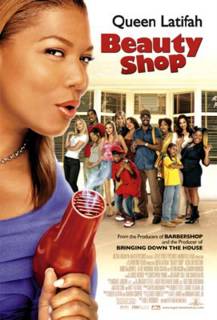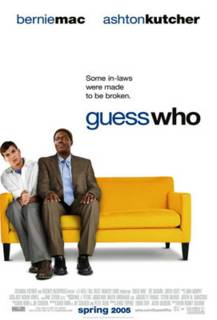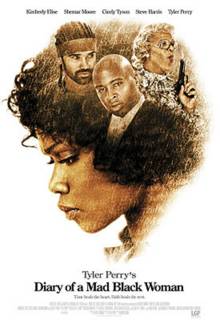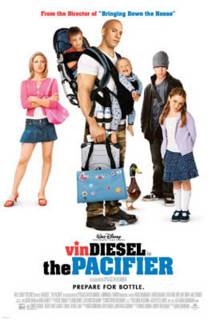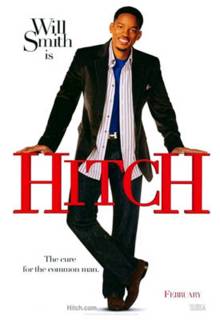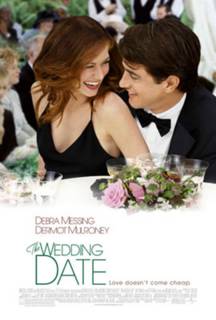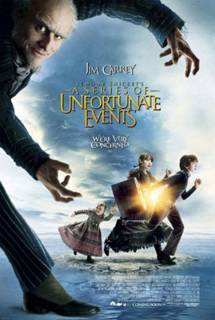Sunday, November 20, 2005
DERAILED
A film noir with a hidden twist somewhere in the middle (but for an anxious moviegoer like this writer, you can very clearly see it and smell it the moment Aniston’s character starts getting scarce screen time), the film trudges along like an ordinary innocent infidelity tale until a rapist barges into a hotel tryst and rapes the woman instead.
Clive Owen, who was perfect in “Closer” stars as Charles Shine, an Ad executive who, one fine day, runs into the seductive banker Lucinda Williams, played against type by the usually sweet Aniston, and they start an illicit affair that would threaten their respective marriages.
Charles saw in Lucinda a temporary escape, a diversion, from the stress in having to care for a type 1 diabetic daughter and having to cope with the loss of a big account. He starts lying to his wife and one night, in the heat of passion, invites Lucinda to a seedy hotel just outside the city not knowing that the impulsive act would send him to a nightmarish struggle against a rapist turned blackmailer.
It was a good setup. And on paper, it may even have been suspenseful. On screen, though, it’s like watching a play being performed for a hundredth time. You come to see the performers, even though, you know very well how the story ends.
And so it is the performances of the two main protagonists that help save the movie from becoming a total failure.
Owen is a complete opposite from the cunning romantic in “Closer” to a conflicted family man unable to know how to control the potentially destructive situation he has put himself in. Aniston, on the other hand, was able to perfectly blend his sweet persona with that of the femme fatale character she portrays.
Perfectly titled, “Derailed” is a disaster movie that wasn’t meant to be. I’d rather have waited for Aniston’s movie with current beau, Vince Vaughn, than to have shelled out nine bucks for this early thanksgiving turkey.
Thursday, August 18, 2005
March of the Penguins
Painstakingly filmed in the harshest region in the world, the movie is more than interesting it is involving. It is more than educational it is enlightening. It is more than entertainment it is serious filmmaking!
Delicately shot for nearly a year in below freezing temperatures of the Antarctic, the crew of Luc Jacquet filmed the Emperor Penguins on their annual trek across the continent to return to the place where they were born to participate in an age-old ritual of courtship and mating. In the process, the crew was able to document a peculiar role-reversal in parenting. After giving birth, the females leave her egg in the care of the male as she takes to the ocean to find food for the offspring when the egg hatches.
This movie has a very simple story to tell but the incredible images show otherwise. The perilous journeys the penguins take to secure their offspring are quite heartwarming and so is their dedication to one another as they struggle over their natural adversaries.
The care and commitment they show towards their chosen partners are remarkable. They remain monogamous for the entire season!
Many more observations and revelations can be gleaned from this marvelous film and I leave it to the viewer to discover them for themselves. This movie is a beauty. It is simple yet it invokes a very powerful theme, that of love, dedication, responsibility, family and the grand succession of generations. Wonderful, wonderful, wonderful!
The Dukes of Hazzards
Surprisingly, I was entertained out of my wits – to some extent, that is.
The cousins, Bo, Luke and Daisy try to prevent the corrupt Boss Hogg from converting their small lovely town of Hazzard into a mining site. That in essence is the plot, or for that matter the entire story.
However, the film still works because of the engaging performances turned in by the lead stars. Jessica Simpson’s acting debut is as revealing as the skimpy dresses she wears in the movie. She was good for the role and I enjoyed her performance. Johnny Knoxville is less obnoxious and offensive here than in his previous turns. Ditto with Sean William Scott.
I have no memories of the TV version of this movie so my judgment will be based on how I perceive it cinematically. I found myself, however, confused with the movie's setting. I thought it is set in modern times but the characters seem to act as if they were in the seventies.
For an afternoon without nothing much to do, this movie should be just good enough to while that boredom away but expect nothing much, although, the car chases are amazing and Daisy Duke’s apparel should cool you enough.
Must Love Dogs
Sarah Hurlihy (played thankfully by the lovely Diane Lane) is a preschool teacher whose recent divorce has sent her entire family on a mad dash to find her a new mate.
She resists the idea and nixes all the date offerings until she meets two men who are worlds apart but whose playful flirtation will push her back into the so-called wagon again.
The first man is his pupil’s promiscuous (which she purposely overlooks) dad and the other is a recent divorcè also who may have a lot more in common with her than she might think. Dermot Mulroney and John Cusack unconvincingly play these men respectively. They are miscast. It could have been the make-up design or lighting, but both men looked so old (much older than I would think their characters ages were). Should I add that their performances border on boredom?
The story has the cutesy feel to it but it fails to elicit anything at all. The pace is slow and scenes are almost repetitive. Even Lane’s performance, although effective and likable, didn’t help at all. Too bad because the trailer was good and I came to the theater expecting to be entertained.
As much as I’d like not to quote a recent review I read about this movie, I just can’t help myself. In that review the writer eloquently wrote: "…must love dogs, must hate this movie…" Ouch!
Oh, there is, however, one scene I enjoyed and gave me reason to stay on until the credits have rolled. During one of the school activities (presumably to establish Lane’s character as a teacher) a dance, very similar to our local Tinikling, was being performed complete with the bamboo poles and the familiar music. Later, the credits called it the "Bamboo Dance." If only they made that dance longer, I would have been distracted some more and perhaps may have made me rethink about this insipid formula.
Saturday, July 09, 2005
Cinderella Man
His eyes welling and his face full of shame, he walks into the middle of the parlor and begs for help. He puts down his cap, takes it out upside down and he starts going around. The men start reaching into their pockets and drops into Braddock’s hat, pennies, dimes, and a few dollar bills.
Of the many memorable scenes in “Cinderella Man”, this one stands out for sheer poignancy.
This particular scene comes about a third into the movie and just for this alone, the price of admission is already considered earned and Russell Crowe, the actor, has proven that surely he is the best actor of his generation. Hardworking and notorious for his temper, Crowe has the gift most actors work their lifetime and yet can’t master but yet in Crowe, it comes off as naturally as breathing and as powerful as the punches he pulls when he becomes James Braddock.
Director Ron Howard has fashioned an underdog fighter formula into one rousing, engaging, touching and inspiring film.
Based on the astonishing true story of the fighter James Braddock who, during the Great Depression, lived with his wife and children in dire, below poverty conditions, yet through sheer determination and willful pursuit of changing his luck managed to turn the fates and became the biggest boxing champion of the era and inspired millions of Americans to have faith in themselves once more.
Among the sterling supporting cast, Renee Zellwegger, who plays Braddock’s wife and the equally-gifted character actor, Paul Giammatti give the most memorable turns. Craig Bierko, who appears late in the movie as the boxer Max Baer, also turns in a menacing performance as Braddock’s final opponent.
During the film’s tense climax, a small interspersed scene, set in a closet, helped underscore the biggest triumph of Braddock’s career. In that scene, the three Braddock children are found hiding and clustering in front of a radio and listening to their father’s fight. A triumph illustrated by the fact that in the heralded scenes of this review, the primary reason why Braddock set all his pride on the side was to able to provide a home for his children, during a harsh winter, with basic gas and electricity, which was cutoff earlier and the children had to be sent away to relatives for their safety.
Braddock's story underscores another telling point: when one man's courage is driven by his love for his family, he can muster all his strength to fight for his own space and deliver the promise to his family. This is the first masterpiece of the year!
Sunday, June 26, 2005
Batman Begins

In “Batman Begins”, Director Christopher Nolan attempts to recreate the lost charm of the caped crusader otherwise known as the Dark Knight er Batman.
Critics from all over have lavishly praised this movie with some calling it “one of the best films of the year.”
Well a good film it is but the best film it isn’t. I can’t even say it’s the best Batman in the series. Tim Burton’s original 1989 “Batman” and the sequel “Batman Returns” are definitely much better. This Batman may have focused on how the myth of Batman came into being, but it did not, however, provide an engaging villain (count this as my first complaint) that would have truly made this particular hero super.
Alright, to begin with, we are told of how the young Bruce Wayne encountered his first bat experience. This frightening episode would create a manic phobia that would eventually cause him to lose both his parents to a mindless homicide outside of a theater.
With his parents dead, Bruce goes on a soul-searching expedition that would take him to the heart of Mongolia, to the lair of a mysterious Vigilante group which may or may not have had a hand in the death of his parents.
His strong conviction to avenge his parents’ death paved the way for him to join this band of mercenaries. He was trained in the art of martial art combat amidst freezing temperatures atop frozen mountains. For his final test, he is summoned to kill a captured murderer. He balks from the challenge and instead he kills everyone except for his teacher (Liam Neeson).
When Bruce returns to the city, he pretends to be a playboy and starts his crusade against the dark elements of Gotham.
Rachel Dawes (Katie Holmes) does not figure in the story yet and even without her the movie would still have hold. Holmes’ performance does not allow the audience to feel her presence. I wanted to believe that because they were childhood playmates, Batman er Bruce Wayne would go to great lengths to save her from the evil Scarecrow (Cillian Murphy) in the guise of saving the city?
Don’t get me wrong. I enjoyed this movie and Christian Bale as Batman is amazing. He has the charisma of Michael Keaton. I was just challenged to question some of its aspects in the light of its almost universal acclaim.
Nolan returns to the roots of the Batman series and he succeeds in building the myth; the concluding parts, however, sadly, was just normal action formula.
One last complaint, the action sequences are incomprehensible. The training scenes are terrible. Oh, I’m gonna get the ire of all batman fans, but why do I care when I can’t even fathom the change in Bruce Wayne’s voice whenever he transforms into Batman!
The best part of the movie? Gary Oldman's scenes. The master thespian returns in a minor role that appears bigger because of his usual acting prowess.
Posted by Hello
Sunday, May 29, 2005
Kingdom of Heaven
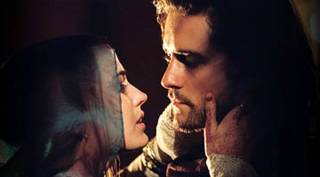
A non-believer thrust into defending the holiest city of all, Balian of Ibelin finds himself in the throes of an un-holy war between the crusading Christians and the equally fanatical Muslims. He is able to hold his ground. He saved hundreds of lives. He saved the city of Jerusalem from ruin. And ultimately he delivered himself from the soils of desperation and destruction to the zenith of glory.
Ridley Scott, hailed as the master of modern epic, successfully gives us again another breathtaking and gloriously decorated production. Kingdom of Heaven is the fictionalized story of the great knight Balian, whose valiant legacy is forever immortalized in history books as the leader who surrendered the holy city of Jerusalem into the hands of Muslim warrior Saladin.
Orlando Bloom headlines this terrific movie and he effectively essays the role in a quiet but compelling performance. From the moment we see him engulfed in grief over his wife's death to his slow realization of the responsibilities pushed onto him after his father dies we find a fusion of emotions from an actor whose performances of late has been rather spotty. Here the actor wields a sword, he makes illicit love to the queen and he battles a battalion of armies, and yet we can still sense a certain amount of vulnerability - one that can be gleaned from the way the film is carefully structured.
The writers have fashioned the film to reveal the story of a tortured soul whose passion for life has ebbed and to be able to redeem himself he must die and be born again to deliver the people of Jerusalem from the threats of destruction and death.
It is not almost noticeable, but it seems to me that Scott has drawn some parallels between the story of Jesus Christ and the story of Balian. Or do I just love the movie so much, I am not sure.
Bloom is ably supported by a stellar cast of actors. Among them Eva Green who last wowed us with her wild portrayal in "The Dreamers". Here she shines as the betrothed princess Sibylla who falls for Balian. Jeremy Irons also appears as Tiberias, the king's loyal advisor, and he is as good as ever even in a minor role. Liam Neeson and Brendan Gleeson also appear.
In Kingdom of Heaven, Scott gives us a truly epic film, devoid of inconsequential nonsense that befell the similar productions of Troy and Alexander. Indeed the film is about the war waged by the Muslims and Christians during the infantile days of religious awakening but the viewer is presented with the cases for both sides: for truly men may have different choices of religion but in the end we are still speaking of only one God. It's a triumph!
Monday, May 23, 2005
Crash
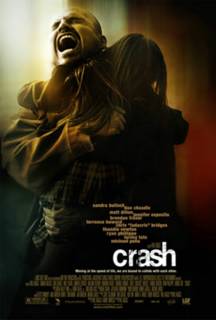
There are numerous episodes of violence in Crash, Paul Haggis’ gritty drama about race relations in multi-racial Los Angeles. From a slur of invectives to virtual sexual assaults, from latent racism to blatant racial distrust, from contained anguish to impulsive acts of aggression. Violence comes in any form.
But the movie is not all that. Crash is a clash of cultures – a crash of egos, frustrations, and frailties that come in everyday living in a city as divergent as LA.
First-time director Haggis, who also wrote Million Dollar Baby, has crafted the year’s first near-masterpiece. Filmed in the tradition of multi-character, fused story line and non-linear filmmaking recently seen in movies such as Amores Perros, Traffic, 21 Grams and Magnolia, Crash provides a fervid vision of society gone awry.
There are no black or white characters in this movie, literally and figuratively. Each has own imperfections. And each facet of humanity is evenly scrutinized, criticized that no character is left unturned. But however the film has depicted these characters, in the end they all come out human – flawed, deficient but all are capable of the universal feelings of hatred, fear and affection, relative or otherwise.
With Haggis’ able direction, the film cruises through a day in the life of several Angelenos as they grapple over life’s basic inequity; directing their frustrations toward people who are culturally, racially different from them. Ranging from misunderstood biases to unsubtle prejudices, these series of vignettes commences in sudden bursts of violence and culminates in a harried play of startling tragedy and inadvertent comedy.
On top of the directing and writing triumphs, Crash is further enhanced by the extraordinary performances of the ensemble cast. Among them, Terrence Howard, Larenz Tate and Matt Dillon give the most memorable turns.
Howard plays a black TV producer who turns a blind eye to lurking racism in his midst. Until he experiences this first-hand and sees his wife virtually assaulted by a cop does he confront this undeniable truth, but what does a black man of his position do? We are given clues, but no direct answer. But his performance signals the coming of another brilliant actor.
Tate plays a nerdy hoodlum who listens to Country music, views his surroundings pragmatically and leads a life on the edge. Whatever awaits his character’s fate, it however sets the stage to unravel another unsettling truth. This truth provokes the viewer to assess his own perceptions about various shades of racial discrimination.
Dillon plays a cop, the symbolic LAPD of recent years. Here he plays a cop whose routine means of apprehending people is sullied by his sinister and racist expressions. We are given tentative glances of his innate goodness but is only ironically summoned in a climactic incident. Dillon’s performance has the toughness and tenderness that leaves the most memorable impression to the viewer.
Notwithstanding the disappointing final frame that closes the movie, Crash remains a cinematic triumph, a scathing thesis on social disharmony. It’s a must-see!
Sunday, May 01, 2005
Hotel Rwanda

The power of a movie is measured by how much it moves you into confronting your own values and beliefs, faith and convictions.
The film, Hotel Rwanda, focuses on a sad and piercing event when a few selfish people, trying to protect their own interests, fabricate stories to incite a long, deep hatred by their Hutu compatriots to wage a genocidal campaign against the Tutsi minority.
The film, however, rightfully emphasizes the inherent goodness in every person as it tells us of one man’s courageous efforts, using all practicable means, to protect his family and people he don’t know from the hands of the Hutu militia bent on annihilating them.
Paul Rusasubagena (Don Cheadle) is such a man. And Hotel Rwanda is his story – a true story.
The day the Hutu President signs the peace accord between his government and the Tutsi rebels; the day majority of Rwandan people come out rejoicing, also marks the beginning of days when Rwanda plunges into hell - a living hell that, in only three months, will kill almost a million people, and almost wipe out the entire Tutsi population.
Paul works as a general manager of the only five-star hotel in the capital city of Kigali. In the course of his dealings with the corrupt system he has mastered the art of gentle bribery. He can count on the help of an Army General anytime he wants to. He is a shrewd man. And he has very good reasons why he seeks the patronage of the powerful.
He is a Hutu and a member of the ruling class. His wife, unfortunately, is a Tutsi.
On the fateful day when the hostilities erupt, he glimpses first hand what he has dreaded all his life: His wife along with the rest of the Tutsis in his neighborhood are rounded by the police and threatened to be killed. Paul bargains by bribing the police with a handful of French francs. The police wavers but warns them that he will come back later and kill them all.
He moves his family and his neighbors to his hotel where the United Nations contingent and a handful of foreign nationals (calm and seemingly oblivious to the massacres occurring outside the hotel grounds) are still staying.
Soon these nationals are evacuated by their home countries when the situation has turned for the worse. And the United Nations, acting on the false report of the ruling Hutu government decides to limit their presence and takes a hands-off policy towards the conflict.
Paul then resorts to his own devises - calling their hotel headquarters, asking his staff to call former hotel guests for help (and if they need to, impress on their friends the precariousness of the situation and that the moment they hung up the phone could mean death for them.)
The story is so riveting that I am having a hard time distinguishing the movie from the real events it depicts. The fact that i am almost telling the entire story shall not diminish the power of this movie when one finally sees it. And I mean it.
Don Cheadle inhabits his character with a pained look in his eyes, a man putting up a brave face but is being consumed by fear and helplessness. He is simply magnificent! Cheadle's awesome display of powerhouse acting is mastefully showcased on the morning Paul breaks down at the hotel locker after they discover the pile of bodies scattered all over a road. The viewer can almost see the real Paul slowly being engulfed in sheer powerlessness.
And the poignant music by Wyclef Jean adds loving dedication to the Tutsi children who will grow up without a father, a mother, a brother, or a sister.
Days after watching this Terry George’s haunting and wrenching drama, I still find myself reflecting every now and then about the events that transpired during those fateful days of April 1994. I have even gotten into reading Rwandan history – how the tribes came into being; how the Tutsis, the Hutus and the Twas found themselves together in one country. What I learned is an interesting history not unlike any of its African neighbors. The European colonizer’s cultural and ethnical ignorance of the region contributed to the marked tribal rivalries that eventually escalated into a fierce and bloody conflict.
And the seeming indifference of the West at the time can also be explained by the debacle the UN faced when they tried to intervene in the earlier Somalian conflict (dramatized in Ridley Scott’s Black Hawk Down).
But despite all these hindsight thoughts, I still can’t fathom how a man can tap such blind fury and commit such heinous acts. And when they say never again, do the Rwandans say this with conviction in their hearts? What about the next generation of Tutsi children? Who will educate them objectively about this event that killed nearly 80% of their people? Questions, questions…
Sunday, April 24, 2005
Sin City

In Robert Rodriguez’ stylish and noirish Sin City, the audience is introduced to a host of sleazy characters – strippers, hookers, rogue cops, cannibals, pedophiles, corrupt politicians – all driven by a maniacal desire of vengeance arising from an outburst of rage to avenge the loss of an object of desire (affection and love cannot be completely equated with how the characters persuasions are melded because all of them seems so dysfunctional to fully appreciate this.)
This is a three-part story all linked by the stripper Nancy (Jessica Alba). As a young girl, Nancy is rescued by the cop Hartigan (Bruce Willis) from the evil hands of Roark (Nick Stahl). The story then jumps to Marv (Mickey Rourke) trying to avenge the murder of his lover Goldie (Jaime King) and it ends with the astonishing battle between the hookers of old town and the mob over the severed head of the rogue cop Jackie Boy/Rafferty (Benicio Del Toro).
Based on Frank Miller’s graphic novels, the movie successfully captures the spirit of its source by presenting it in a dour black and white color and occasionally infusing it with brutish colors of red, yellow and gold to put significance to the particular character in focus.
Beyond the superb photography, the movie also benefits from a reasonably violent yet terrific screenplay.
There is, however, one nagging question that I may have missed in sorting out the stories. After Marv has killed Kevin (Elijah Wood), he goes to Nancy’s flat and leaves the shaken Wendy (Jamie King in a dual role) to recover, Nancy acts so normally when later on it is implied that this takes place after she is rescued once again by Hartigan from the resurrected Roark.
Still, the movie is a visual feast. The physical violence is creatively neutralized by the artistic use of sounds, shadows and grey colors. Quentin Tarantino guest-directed a segment of the finale when the level of violence is amped to its goriest highs.
Without expectation of any redemptive values, Sin City is pulp fiction at its finest. It very effectively cast a confusing focus on the larger representation of the city and its inhabitants to the present-day real society which inarguably is littered with the same cast of seedy characters all lurking in the created shadows of glorified existence but are ready to lunge and kill at a moment’s desire.
Fever Pitch
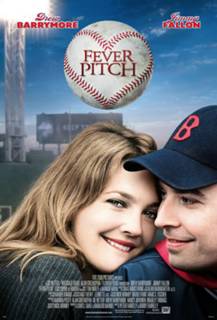
Fever Pitch is pitch-perfect! Hooray to Jimmy Fallon for finally finding the right vehicle for his comedic gift.
Fallon is Ben, the schoolteacher who falls in love with Lindsey, a mega-workaholic financial analyst, whose passion in life is to crunch numbers in various degrees of stressed conditions. How they meet and fall in love - gradual, sincere and inspired, make for a funny yet thoughtful and thoroughly affecting romance.
Based on Nick Hornby’s book (he also wrote High Fidelity), Fever Pitch is the story of Ben (Jimmy Fallon) whose passion for the Boston Red Sox stretches to fanatical obsession thus inadvertently getting in the way of his love life until he meets Lindsey Meeks. And Lindsey, whose preoccupation with her work have virtually held her stuck to her office chair, welcomed Ben’s entry to her life as a wonderful break until she realizes that something is seriously not normal with Ben.
When asked what his priorities in life are, Ben puts Red Sox over and above everything else; his bedroom is like a souvenir shop on Fenway Park.
The conflicts that arise from the blossoming romance are sensibly written and logically presented. The sometimes funny, sometimes dispiriting series of breakups and making ups are not tiring however because you are rooting for love to conquer their seeming differences and allow the lovers to eventually realize how much they mean to each other: that no work or red sox can and should get in the way of that.
This Farrelly Brothers romantic comedy is a big departure from the usual grossed-out and politically incorrect comedies they are more popularly known for although there is no denying that this is their movie: the usual cast of colorful supporting characters who have a fair share of screen time and dialogue people this movie as well as the refreshing and distinctive use of old songs in the soundtrack.
They also had the luck of filming this movie during the victorious 2004 season of the Red Sox. They may have changed a couple of finale sequences to accomodate the turn of events during the season but luckily for them the rapturous and massive euphoria of the championship as captured in the climax added several dimension to the small victory of love that magically gave Ben’s life a whole new purpose outside of Fenway Park.
And, so, thus Fever Pitch, a well-written and wonderfully acted film, ends in triumph for both the cursed Red Sox and the never-again loveless Ben.
Friday, April 15, 2005
Beauty Shop
Could it be that Queen Latifah's stardom has reached its highpoint with 2002's Chicago? One can't help but consider this thought when the quality of her film choices have been on a downhill slide since with films like the average Bringing down the House, the disappointing Taxi and her latest Beauty Shop. |
Guess Who
The duo of Percy Jones and Simon Green make for an unusual pairing in Guess Who - an update of the classic social satire Guess who's coming to Dinner. This version takes the spin on the colors and race in reverse and the result is a fun-filled entertainment of comedic brilliance and ingenious casting. |
Sunday, March 06, 2005
Tyler Perry's Diary of a Mad Black Woman
This dark, comic melodrama starts out with a very promising lead. Kimberly Elise is Helen. She has been married for eighteen years to Atlanta socialite-lawyer Charles McCarter (Steve Harris). On the night of their anniversary, Charles literally drags her out of their mansion as he brings in his new sweetheart. |
The Pacifier
|
Hitch
Will Smith is Alex Hitchens. He is Hitch, the "Date doctor", to his clients of homely gentlemen looking for that recipe to snatch the women of their dreams into their tender arms in a conquering embrace of true love. |
Sunday, February 06, 2005
Boogeyman
As a child, Tim witnessed his father's abduction by the Boogeyman, who lurked in the dark shadows of his bedroom closet. The vanishing was downplayed by his family and he was persuaded to believe that his father simply abandoned them. His mother was committed to an insane asylum soon afterwards. It is now fifteen years after that dreadful night and yet Tim still hasn’t gotten over his fear. He has been consulting with psychiatrists over the years and he has not been successful in combating this terror inside his heart. Soon, he is forced to relive his nightmares once again when his mother dies. At the funeral, he meets a mysterious child who may or may not be the key that will unlock the secrets of the evil phantom. This movie works surprisingly well. The terror and suspense it generates was sustained pretty much all throughout the tense one-and-a-half hour running time. There are clichés, of course, but it was effective in building up the creeping atmosphere of dread and helped provide rooms for effective twists in scenes where you think you know what will happen next based on how movies of this kind usually play out. For a low-budget thriller ($7 million), this movie achieved what the loud and visual-effects laden big-budgeted horror flicks fail to do: take the audience into a wild jolting ride of dreadful anticipation. The use of psychological and mental suggestions in some of the scenes bring to fore additional questions that further make the story more involving: could those things be really happening or are we just being played by Tim who may not have taken his father’s abandonment well and played out this neatly woven tale of a Boogeyman who will, at any moment, strike from behind the darkened shadows of the closet and take away your loved one? We don’t know for sure but we are thinking. |
Million Dollar Baby
Clint Eastwood, Morgan Freeman & Hilary Swank form a formidable triumvirate in Eastwood’s lonely Million Dollar Baby and what a gratifying experience it is watching these actors’ splendid work magnified larger onscreen. Million Dollar Baby holds a disturbing twist at the end that has divided its audience in a contentious debate in the line of ethics and morality. Not surprisingly however, the outstanding filmmaking merits of the film is kept at bay because it is just simply one of the greatest films of the year. Maggie (Swank) is a trailer-trash Southern girl who earns a living waiting on tables in LA. She keeps a metal foil in her pocket to store food leftovers which will provide her dinner. She has a dream. She wants to be a boxer and she doesn’t want anybody else to train her except Frankie Dunne. Frankie (Eastwood) is an aging boxing trainer whose gift in training boxers and churning out champions is on the wane as he grapples with a seeming guilt from a sin in his past that he can’t seem to overcome. He goes to church everyday. Engages the priest in a religious banter and yet there is a nagging sense of something, a quiet and passionate plea for forgiveness that he can’t grant even unto himself. He writes letters to a daughter who refuses to acknowledge and returns them unopened and yet he persists on writing everyday. Frankie manages a gym with Scrap. Scrap (Freeman) is an ex-boxer whose only attempt at boxing glory ended tragically as he lost one of his eyes. Now, he lives in a makeshift room inside the gym with no possessions except the memories of his time as a promising boxer and the broken dreams of becoming a champion. Scrap provides the narrative flow of the story. Based on a collection of short stories titled Rope Burns by F. X. Toole, this movie has the dark somber elements of Eastwood’s own Mystic River yet the powerful denouement recalls the tragic and unexpected conclusion of Midnight Cowboy and more recently The Hours and House of Sand and Fog. Frankie hesitantly takes on Maggie under his charge but upon the prodding of Scrap he finally agrees on training her. Eventually, Frankie and Maggie form a friendship fostered on their equal need of each other - She a father figure and he a daughter he has not seen in years. When Maggie fought her first professional fight, Frankie gave her a robe with a gaelic name imprinted on it. When she asks what it means, he shrugs and tells her to find out on her own. Later, this will be revealed in one of the most crucial scenes in the film and almost certainly, i could feel the entire audience let out a collective gasp. The Clint has fashioned a harsh movie based on a brilliantly written script and the audience is treated to another exceptional performance by Hilary Swank. As Maggie, Swank is able to transform herself again and this time to that of a late-blooming boxer who turns into a mean-spirited destroyer inside the ring. The combination of her girlish angst and boxing skills has contributed to a fully realized characterization that invites admiration and ultimately awards recognition. No one can approximate how great she has performed here without going into the film’s deservedly kept secret. I will not go into it but suffice it to say that if Swank was able to convincingly portray herself as a girl masquerading as a man in Boys Don’t Cry, in this movie she does the same thing and boy, can she be any better. This is a movie with sparse dialogues hence the need for a narrator but the lack of spoken scenes is significantly overshadowed by a few but witty banters between Scrap and Frankie. There is one particular scene where Frankie is admonishing Scrap for wearing ugly worn socks (with holes!) inside his office and for those few moments the viewer is able to get a glimpse of how the characters inner selves are working. We are given an idea of how deep their friendship is and how Scrap manages to tolerate living such a nasty life. There is sidebar story about a boy who moved from Texas with dreams of becoming the world's welterweight champion. His name is Danger and his story is special as it provides extra weight to the characters of Scrap and Frankie. More than the character element, his part in this story is to further encapsulate the resonating theme in this movie that everyone suffers one big loss in his life and it isn’t worth crying over but instead one must be able to regain his foothold, throw all weighty emotions away and continue on fighting for life. Such is the power of this movie that it can depict questionable ethics and yet still champion the cause of life. |
The Wedding Date
Debra Messing is Kat. She is a British expatriate working in New York. Dermot Mulroney is Nick and he is what you would ordinarily call a male gigolo, but in this movie he is called, euphemistically, an escort. A wedding takes place in a week and Kat hires Nick to escort her to the wedding to the tune of $6,000 (excluding the charge for extra services, wink…wink…) which she withdraws from her 401k fund. Why she, a pretty lady, would be so desperate to get a hooker to escort her to her sister’s wedding is explained in a jiffy: Her former fiancé is the best man and she apparently, after being unceremoniously dumped by his ham of an ex-boyfriend, still feels romantic about him and by hiring a world-class escort, she expects to see him drool in fierce envy, but... Alright! Enough already! The story has been made into a variety of movies before and the viewer is very much aware of this fact before going into the cinema. So, with that out, the only challenge for the filmmakers is to be able to generate a plausible scenario that will somehow make this at least worthy of the ticket admission. The movie tends to be repetitious at times but it fortunately succeeds in building the romance between the unlikely pair of Kat and Nick. The canned characters that populate this formula are surprisingly amusing and even refreshing too, especially the cousin who has the best written lines outside of the main stars. There is a very romantic notion about finding love in the most unlikely person – that no matter how much you try to ignore it, love and all its rosy promises will still win in the end. Messing is gradually making the transition into the big screen and she brings such joy into it. Her Kat is an off the wall character whose wildly inconsistent ways prove such a charmer that eventually captures the heart of Nick. Mulroney provides great romantic support with his portrayal of an escort who, in his quiet demeanor, shows why he is much sought after by the ladies. What makes me like the movie more is its wonderful use of Michael Buble’s music. Home, Buble’s latest release happens to be my current favorite and when I heard it played, I instantly had a change of heart about the movie and started liking it. Sometimes, a clever director, when he knows he has a not so good a movie plot to sell, only needs to devise some other ways by which to distract the viewer and in this case I was pleasantly distracted into liking the movie. Enough said. |
Tuesday, January 11, 2005
Ocean's Twelve
Danny Ocean (George Clooney) and his cohorts are mysteriously tracked down by their old nemesis Terry Benedict (Andy Garcia) and they are given ten days to return the money they stole from him plus interest, and it roughly runs to $160 mil.
The team regroups and heads to Amsterdam to start raising the money. In Europe, they meet another thief who is bent on reclaiming the odious title of being the world’s greatest.
The plot is thin and the storyline looks to have been written for the sole purpose of reuniting the old gang in a sort of homage to the success they had the first time around. However, Steven Soderbergh’s brilliant filmmaking and clever editing lifts the film to a massive all-star thrilling caper. Not only is the editing good, it actually sustains the thrill of watching Hollywood's biggest stars being paraded on screen.
The movie, at first, seems lost and confused when all cards are scattered wildly across and characters go in and out of the narrative. But, in true Soderbergh fashion the cards are slowly brought together and once the loose ends are tied up, we are presented with a stunning conclusion that is so imaginative it rivals to some degree the surprise twist of the first movie.
The cast are a joy to behold. When one is such a huge fan of movies, seeing all these stars having fun together in a movie is such sheer entertainment pleasure.
The musical score that bookends the film is also creatively utilized. I think the lyrics are in English but the sound is European, French to be exact. I have heard it once and it is indeed wonderful to listen to. Just like the deceptive music, the storytelling has some deceptions in its sleeve too because it is told from the viewpoint of one person who was trying to run the story from the background, but loses still in the end.
Watch for Julia Roberts when she does a hilarious character switch near the end.
Meet the Fockers
This sequel to the hit Meet the Parents brings back the unfortunately named fellow Gaylord Focker (which he hides under his Greg nickname) and his miserable exploits as he tries to win the approval of his fiancée’s father, the paranoid ex-CIA Jack Byrnes.
The comedy is a study on the disparate lifestyles between Greg’s liberal and oversexed parents and the uptight and conservative Jack.
Jack Byrnes (Robert De Niro) is now a doting grandpa and he travels with his entire family on his brand-new RV to sunny Florida to meet Greg’s parents purposely to discuss the matter of his daughter Pam’s (Teri Polo) marriage to Greg (Ben Stiller). But as soon as they land on Focker Isle (the family estate), they are introduced to an eccentric couple who would put to shame any man wanting to impress his in-laws.
Barbra Streisand is Rose, a liberated sex therapist for geriatrics and Dustin Hoffman is Bernie, a stay-at-home husband who loves the brazilian kung fu.
The spin on the apparent conflicting lifestyles set the stage for outrageous situations. As Greg anxiously coax his parents to mellow down their loud antics, Jack is doing his own investigations into the family and Greg’s unrevealed past.
The casting of Streisand, Hoffman and De Niro together is a huge coup. Their mere presence elevates the movie’s entertainment value to a higher level and the viewer is left full and yet feels like that cute toddler little Jack, still hungry for milk and for those fake bosoms.
Most of the old cast is back. The hysterical stewardess is back but has turned nicer. Even, Kevin, the bitter, ex-beau is back and this time he would take an important role in the movie’s biggest highlight. Watch out also for bosomy Isabel, Greg’s former nanny, who provides some of the funniest scenes in the movie.
This is a movie that doesn’t require much of the audience. It just presents itself as it is - no pretensions whatsoever. When we meet Rose Focker, we almost feel like we know her and we warm up to her immediately. That in essence is what the movie is about. We feel we see people we are familiar with, doing acts we hesitate doing personally but delight in seeing done onscreen.
Sunday, January 09, 2005
Lemony Snicket's A Series of Unfortunate Events
It is indeed unfortunate to see such a promising premise completely overshadowed by special effects. Jim Carrey fails to impress as Count Olaf, the court-designated guardian of the Baudelaire orphans; Violet, Klaus & Sunny. His multi-character role may have been a big challenge to this extremely talented comedian but the performances he registered on screen reveals otherwise. The Baudelaire children suddenly found themselves orphaned when a strange fire gutted their house and killed both their parents. The courts then put them under the custody of their only surviving relative, the mysterious Count Olaf, who strangely enough lives just a few blocks off their old house and yet was never introduced to them. Soon, the children discovers that Count Olaf has agendas on his mind other than caring for them. When Count Olaf fails to eliminate the orphans, the children are moved to the foster care of one of their parents' old friend. But, soon enough, a very unfortunate event would end the kind doctors life. The children are then moved to another foster parent, this time to an eccentric old lady who fears realtors. Meryl Streep's drolling portrayal of Aunt Josephine is one of the finer elements in the movie. This is a very dark movie with a very good plot. However, the narrative is a bit unfocused and the parts where Count Olaf was to marry young Violet was too disturbing for a children's film. The children who portray the Baudelaire orphans are such a joy to watch, especially young sunny, who was so delightful in one particular scene with a giant snake. Jude Law again appears in what will be his 7th (?) movie appearance this year! He plays the title character. |
